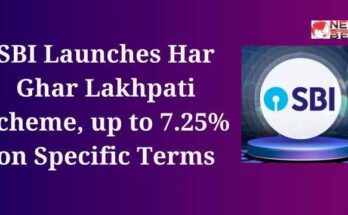Aachar Sanhita, also known as the Model Code of Conduct, is a set of guidelines issued by the Election Commission of India for the conduct of political parties and candidates in the run-up to an election. It is intended to ensure free and fair elections by regulating the behavior of all political stakeholders. The code comes into effect as soon as an election is announced and remains in force until the results are declared. It covers a wide range of conduct, including speeches, polling day activities, polling booths, election manifestos, and the conduct of political parties and candidates. The primary aim of Aachar Sanhita is to maintain the integrity of the electoral process by preventing practices that could disturb the level playing field during elections, such as misuse of governmental power, bribery, intimidation, communal appeal, and financial inducements.
Table of Contents
ToggleHistorical Context and Evolution
The origin of the Model Code of Conduct can be traced back to the early 1960s when the state of Kerala went to polls. It was initially adopted as a voluntary agreement among political parties. Its success led to its adoption in the 1962 Lok Sabha elections, and over the years, it has evolved through a series of amendments to address emerging challenges in the electoral process. The ECI has been instrumental in enforcing the MCC to ensure that elections are conducted in a spirit of fairness and impartiality.
Objectives of the Model Code of Conduct
The primary objectives of the MCC are to:
- Ensure that the conduct of elections is in accordance with democratic norms and ethical practices.
- Prevent the misuse of governmental power to influence voters.
- Maintain the neutrality of public servants involved in the electoral process.
- Provide a level playing field for all political parties and candidates.
- Minimize electoral conflicts and maintain peace and order.
- Regulate political parties’ and candidates’ behavior to avoid practices that can disturb the electoral environment, such as hate speech or communal appeals.
Key Provisions of the Model Code of Conduct
The MCC is divided into several sections, each addressing specific aspects of the electoral process. Some of the key provisions include:
- General Conduct: This section prohibits parties and candidates from using caste, community, or religion to seek votes. It bars practices that can incite hatred or tension between different communities and lays down guidelines for the conduct of rallies and meetings.
- Meetings and Processions: It outlines the rules for holding public meetings and processions, including obtaining necessary permissions and avoiding clashes with other parties’ schedules.
- Polling Day Conduct: It specifies the behavior expected at polling stations on the election day, including prohibitions on canvassing within a 100-meter radius of polling stations and the ban on the display of election matter by means of television or similar apparatus.
- Party in Power: Special restrictions are placed on the ruling party to prevent it from using its official position for campaign purposes. This includes a ban on announcing financial grants, new schemes, or projects once the MCC comes into effect.
- Guidelines for Government Servants: Government officials involved in elections must act in an impartial manner. They are barred from engaging in any election-related activities other than their official duties.
- The Role of the Election Commission: The ECI is empowered to monitor the adherence to the MCC and take appropriate actions against violations. This includes reprimanding or advising parties and candidates, and in extreme cases, barring them from campaigning for a certain period.
Enforcement and Challenges
The enforcement of the MCC has been a challenging task for the ECI, primarily due to its nature as a moral code without statutory backing. However, the ECI has been empowered to enforce these guidelines strictly through its control over the administrative machinery involved in elections. It investigates complaints of violations and can take actions like reprimanding, advising, or even filing FIRs against violators.
Despite its significant role in maintaining the sanctity of elections. The MCC faces challenges such as its limited legal status, which sometimes hampers the enforcement of its provisions. There have been calls for giving it statutory backing to enhance its enforceability.
History of Code of Conduct
The concept of a Code of Conduct has a long history, originating from ancient cultures and civilizations where moral guidelines, laws. And ethical codes were established to govern behavior within societies. These early codes, such as Hammurabi’s Code, the Ten Commandments, and the Edicts of Ashoka. Set forth rules for fairness, justice, and conduct in various aspects of life. In the modern context, Codes of Conduct have evolved to include formalized standards and principles designed to guide behavior in specific settings. Such as workplaces, educational institutions, and professional organizations.
These contemporary codes often emphasize ethical behavior, integrity, compliance with legal standards, and respect for individuals and communities. They serve as a framework for decision-making and behavior, aiming to foster environments based on trust, respect, and accountability.
You May Also Read:
What is Digital Marketing in Hindi
SEO Interview Questions and Answers
What is Affiliate Marketing Meaning
When Does the Code of Conduct Come into Force?
The term “Code of Conduct” can refer to various sets of rules adopted by different organizations, communities, companies, or governmental bodies. Therefore, the time at which a Code of Conduct comes into force can vary widely depending on the specific document in question.
Generally, a Code of Conduct becomes effective at one of the following times:
- Upon Adoption: Some Codes of Conduct specify that they come into force immediately upon being adopted or ratified by the governing body or group responsible for creating them.
- Specified Date: Others may include a specific date on which they become effective, giving members of the organization or community time to familiarize themselves with the new rules.
- After a Transition Period: In some cases, particularly when significant changes are introduced. There might be a transition period after adoption during which the rules are gradually implemented. The full Code of Conduct would then come into full effect after this period ends.
- Upon Agreement or Signature: For Codes of Conduct that are part of contracts or agreements (such as those for employment or membership in an organization). They may come into force at the time the involved parties agree to or sign the document.
Conclusion
The Model Code of Conduct is a cornerstone in the Indian electoral system, designed to ensure that elections are conducted in a fair, impartial, and ethical manner. While it has played a significant role in leveling the playing field and maintaining the order during elections. Its effectiveness is contingent upon the willingness of political parties, candidates, and the government to adhere to its spirit. The ongoing evolution of the MCC in response to emerging challenges underscores. Its importance in India’s democratic framework, ensuring. That the electoral process remains a true reflection of the people’s will.
FAQs:
Q1. What is Aachar Sanhita?
A: Aachar Sanhita, or the Model Code of Conduct (MCC), is a set of guidelines issued by the Election Commission of India. To regulate political parties and candidates’ behavior before elections to ensure free and fair elections.
Q2. When does Aachar Sanhita come into effect?
A: The Model Code of Conduct comes into effect immediately after the election schedule is announced by the Election Commission of India.
Q3. To whom does Aachar Sanhita apply?
A: It applies to all political parties, their candidates, and all government officials to ensure. That their actions do not influence the election’s outcome.
Q4. What are the key provisions of Aachar Sanhita?
A: Key provisions include restrictions on hate speech, the use of government resources for campaigning, holding public meetings, and the conduct of rallies. It also sets guidelines for the behavior of party members and candidates.
Q5. Can new welfare schemes be announced during Aachar Sanhita?
A: No, the announcement of new welfare schemes by the government is prohibited under the Model Code of Conduct to avoid influencing voters.
Q6. How does Aachar Sanhita affect government work?
A: Routine government work is not affected, but the government cannot launch new projects. Make any new appointments, or make promises of future projects that could sway voters.
Q7. What happens if a candidate violates Aachar Sanhita?
A: Violations of the Model Code of Conduct can lead to warnings, censure, and in severe cases. The candidate may be disqualified from the election.
Q8. How is Aachar Sanhita enforced?
A: The Election Commission of India enforces the Model Code of Conduct. It monitors the conduct and takes action based on complaints and reports from observers and other stakeholders.
Q9. Does Aachar Sanhita apply to social media?
A: Yes, the Model Code of Conduct applies to social media. Political advertisements, campaigning, and conduct on social media platforms are monitored and regulated.
Q10. How long does Aachar Sanhita remain in effect?
A: The Model Code of Conduct remains in effect until the election process is concluded. Which is typically after the final counting of votes and the declaration of results.




